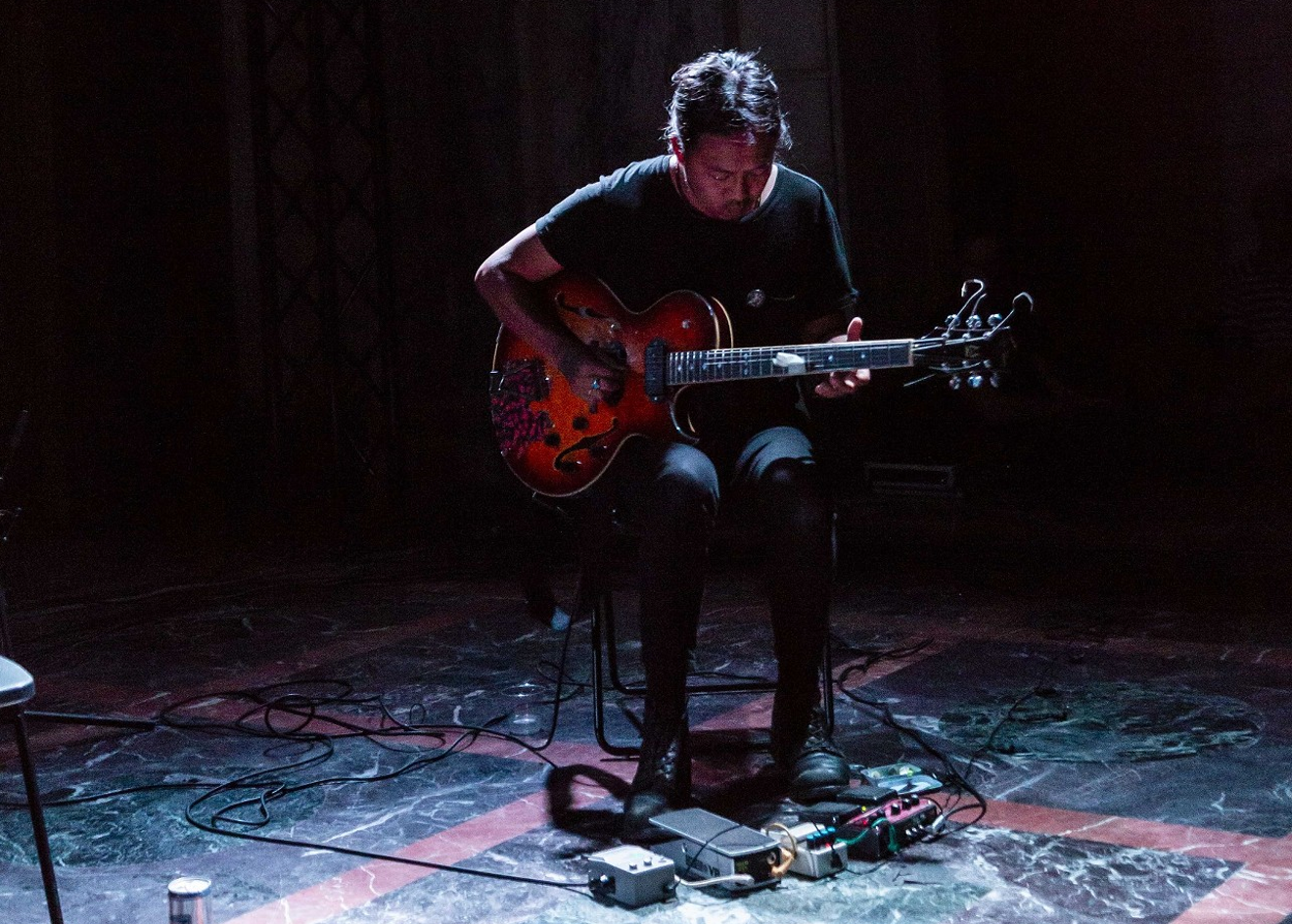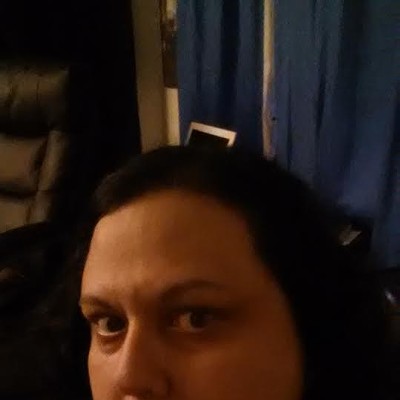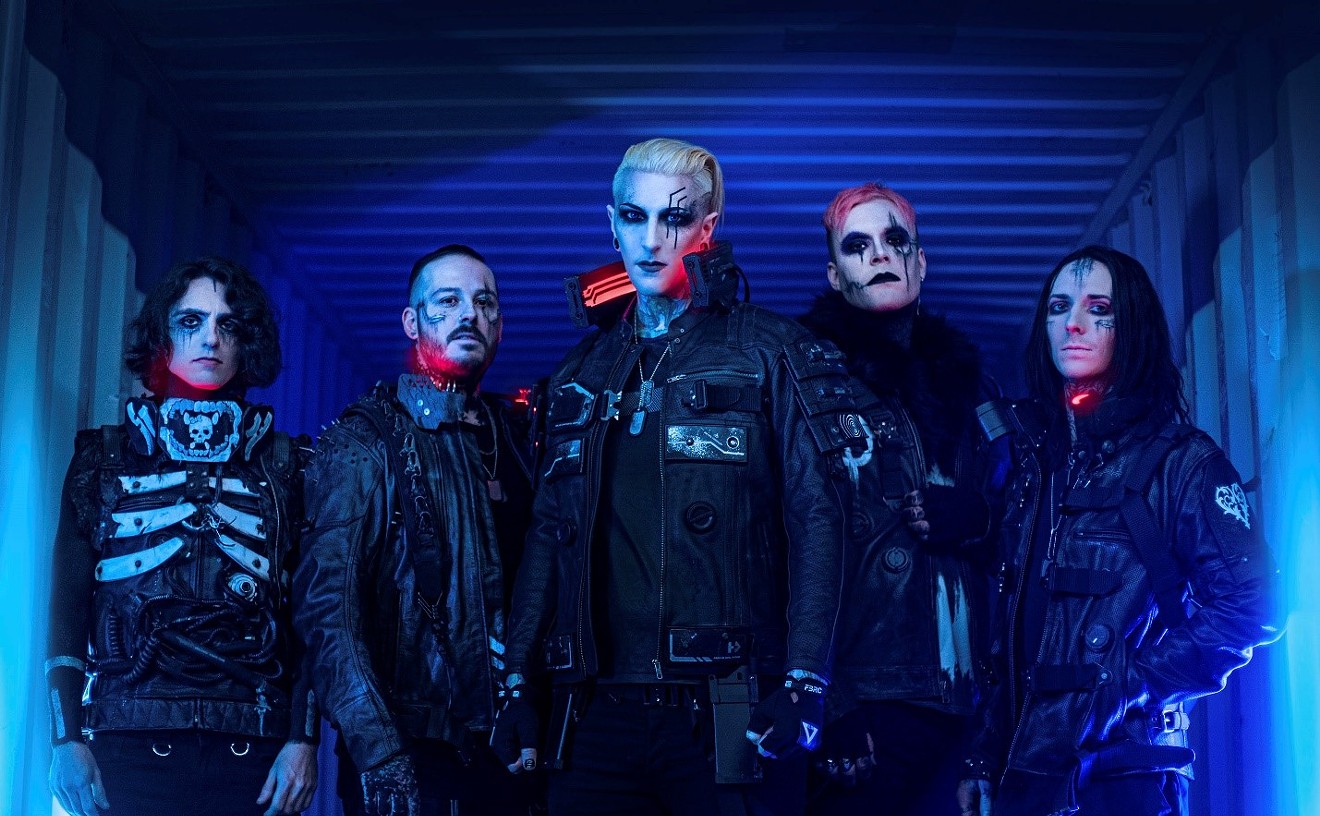Dorji was born in Bhutan, but has been stationed in Asheville, North Carolina, since 2000. Dorji is also a constant collaborator, and when he visits Phoenix, he’ll be performing with John Dieterich, who is best known for playing in San Francisco’s Deerhoof. Currently, Dorji is on a road trip with his partner and two kids, enjoying nature and peppering their travels with some live shows. He took some time to talk about his roots, his experimental style, and the upcoming shows with Dieterich.
At your upcoming show at Trunk Space, you’ll be performing with John Dieterich from Deerhoof. How did that happen?
Caleb (Dailey) from Moone Records made it happen. I contacted him about doing a show, and he was really interested in putting one together. He mentioned that he knows John and that John likes our music and would like to collaborate.
So the two of you have never worked together?
Never. Caleb brought it up, and it sounded like a great idea, so we're going to do a few shows together as a duo.
Are you two doing any rehearsing before the show?
No. We're gonna say hello at the show, grab our
When you play live shows, do you ever play songs from your catalog?
Not at all. Mostly because I don’t remember how to play them (laughs).
When I'm in the studio, I just play, and what results is the final product. There are intentions to play fully formed pieces. I focus on creating something that is solid. I can remember, sometimes, some of the songs I've written. I could possibly backtrack and play some of them, but I've never done that, ever.
Was a freeform style of playing always the most attractive to you?
Yeah, I think so. I was against playing compositional music. It just seemed so easy to not do that. I like feeling free. To play music the way I do, I feel is part of a deeper motivation inside of me in a lot of ways. I think when I first heard recordings of people making improvised music and doing it so well, it was wonderful. Also, a lot of the music where I am from, Bhutan, has an improvisational component. I think that has a little bit to do with it as well.
So where there’s no goal to create a specific form when you create, there are personal motivations?
Definitely. I know a lot of people can play music about things going on in the world, like what's going on in the government. I try, but most of the time it's as I start playing, parts of my brain respond to the notes and music, and I can build on that intensity or that message.
Who or what got you into experimental music?
I got into experimental music through punk rock. When I first came to the U.S., I was really into anarchistic punk music, and through that, I got turned on to John Zorn and stuff like that. The most impactful was when I started hearing John Coltrane and Albert Ayler. Jazz – that was so punk! Just a different era of it. I listen to a lot of world music, too.
You’re self-taught, right?
Yes. When I was younger, I learned some chords from a friend of mine and begged my mom to buy me a guitar — there weren't even any music stores around where I was, but we had a neighbor who had an expat living at his house and that guy had a guitar and
Traditional playing is repetition-oriented, with the payoff coming from making a song better over time. You’re not revisiting your creations, so is your enjoyment mainly from the freedom that comes with your style of working?
For sure. I am more concerned about finding and discovering new territories – that’s what I like. It’s completely different from any traditional format. Don’t get me wrong, it’s challenging, too. Sometimes I suck and find myself at a loss for ideas. Either way, I will always find the freedom thrilling and exciting.
Tashi Dorji & John Dieterich. With James Fella and Warm Climate. 7 p.m. Saturday, September 8 at Trunk Space, 1124 North Third Street; thetrunkspace.com. Tickets are $10 at the door.











